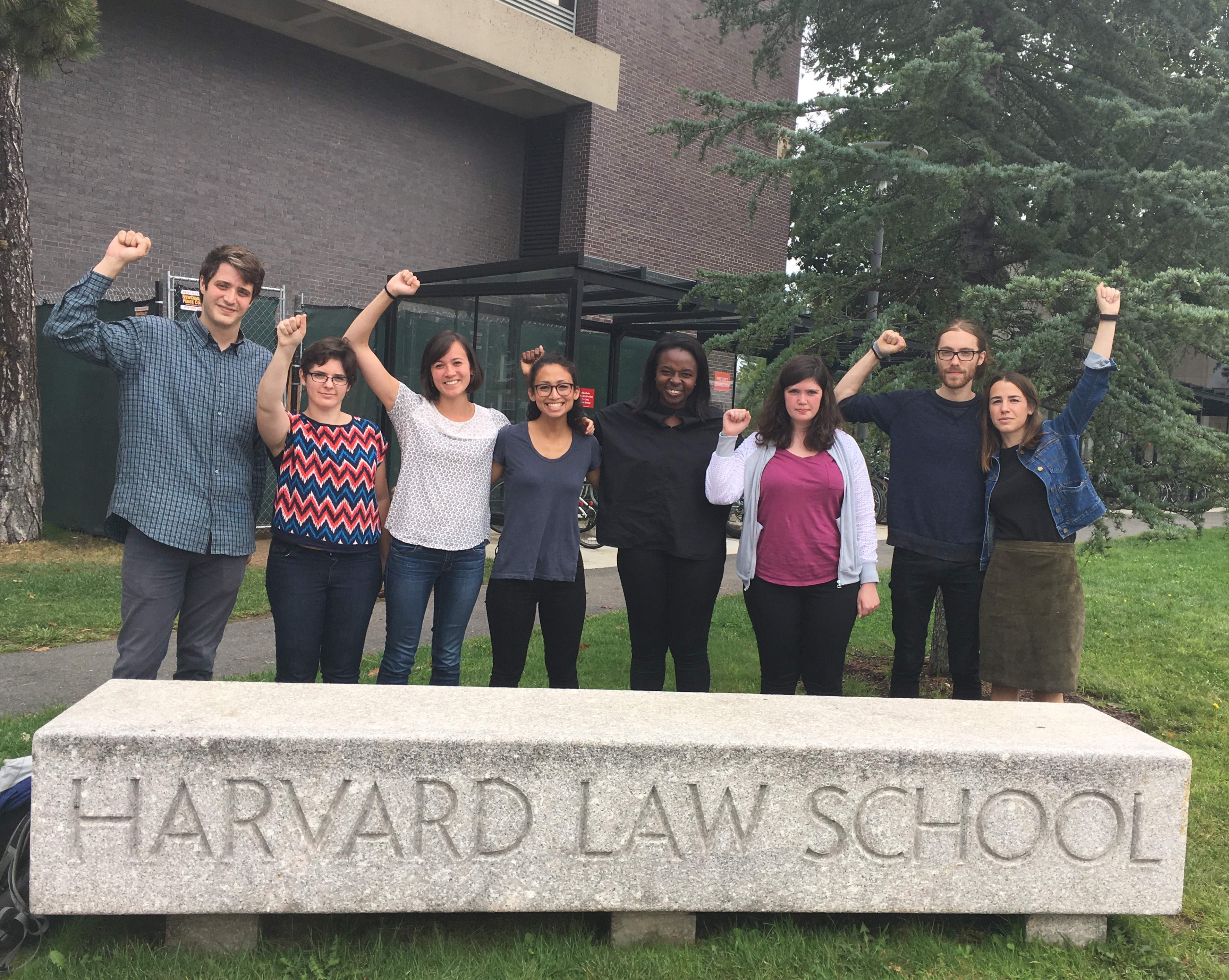
Harvard National Lawyers Guild and the Harvard Prison Legal Assistance Project stand in solidarity with prisoners
SEPTEMBER 9, 2016— Today, thousands of inmates in as many as twenty-four states plan to engage in a coordinated strike and protest in an attempt to bring national attention to the inhumane conditions in which many prisoners live and work. The date marks the 45th anniversary of the Attica prison uprising, when one thousand inmates at the New York correctional facility rose up to demand certain rights and better living conditions. They were met with brutal retaliation that left twenty-nine inmates and ten hostages dead.[1]
Forty-five years later, many of those same demands for dignity remain unanswered and so the Harvard Law School Chapter of the National Lawyers Guild declares its solidarity with and support for the national prisoners’ strike.
Prisoners in the United States are forced to work for little to no pay, functionally enslaved within the prison system. While the Thirteenth Amendment abolished slavery and involuntary servitude for most Americans, it included an exception for penal servitude. In the era of mass incarceration, this means that probably close to a million people living the United States are subjected to forced full-time labor every single day. Indeed, there are more Black people in prison, jail, or on parole in this country today than there were living under slavery a decade before the Civil War.[2]
As a result of this loophole in the Thirteenth Amendment, prisoners are forced to work an average of eight hours a day, and those workers who receive payment at all only make between $0.23 and $1.15 per hour, one-sixth of the federal minimum wage.[3] Due to the increasing costs of commissary items combined with extremely low or non-existent wages, many prisoners are released from prison with debt they did not have when they entered. The main beneficiaries of this brutal and exploitative system are the U.S. military and private corporations, which use inmate labor to manufacture products for a profit.[4] We demand that this systematic exploitation of prisoners for the benefit of corporate profiteers and the U.S. military be brought to a halt!
As in Attica, changing the situation through a grievance process, courts, or the media, all of which are hostile to prisoners, is an unacceptable proposition. Direct action challenging the power of the authorities is necessary. In the words of the prison organizers themselves, “[w]e hope to end prison slavery by making it impossible, by refusing to be slaves any longer.”[5] The prisoners participating in the September 9th strike are likely to face severe retaliation and punishment for their show of resistance, so it is imperative that students and other non-imprisoned allies make our voices heard loudly and clearly.
We support the prisoners in their struggle against forced labor, and we will continue to organize and campaign in their defense. We are watching the prisons, and will fight back against any punitive retaliation against these prisoners. The prisoners have the full solidarity of students, activists, and people of conscience around the country. They are not alone, and we hear their cries even through the concrete walls that cage them.
Daniel Espo, Katherine Robinson, and Collin Poirot are co-chairs of the Harvard National Lawyers Guild and members of the class of 2018.
[1] http://www.nytimes.com/2016/09/04/books/review/blood-in-the-water-attica-heather-ann-thompson.html?_r=0
[2] http://www.huffingtonpost.com/2011/10/12/michelle-alexander-more-black-men-in-prison-slaves-1850_n_1007368.html
[3] http://www.prisonpolicy.org/prisonindex/prisonlabor.html
[4] http://www.alternet.org/story/151732/21st-century_slaves%3A_how_corporations_exploit_prison_labor
[5] https://supportprisonerresistance.noblogs.org/post/2016/04/01/announcement-of-nationally-coordinated-prisoner-workstoppage-for-sept-9-2016/


